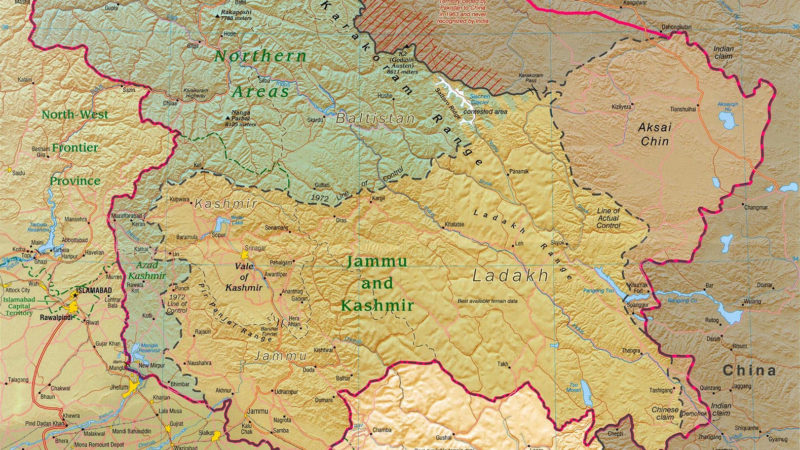
Its now 29 days since seven million Kashmiris found themselves occupied and facing a military siege under the orders of Indian’s Prime Minister, Narendra Modi, who revoked Article 370 of the Indian constitution providing Kashmir with special status and autonomy at the start of August. The move by India violates the country’s own constitution, international law and UN resolutions. India has also imposed an internet and communications blackout, cutting Kashmiris and Kashmir off from the outside world, further fuelling a human rights crisis and putting Kashmiris at greater risk of enforced disappearances, torture, rape and deliberate blinding by the Indian army firing pellet guns into the eyes of civilians causing blindness or life-changing injuries. According to the Kashmiri Media Service, Indian soldiers have killed 16 Kashmiris over the past month – including a young boy and a woman.
Over the past 29 days, India has deployed a reported 38,000 heavily armed Indian troops to Kashmir to add to the existing 700,000 Indian soldiers already inside the area. Even before the start of the crisis in August, Kashmir was already one of the most militarised places in the world. A handful of journalists who have found a way to leave their homes and report on what is happening, and others who have made it to Kashmir, have been reporting on food and medicine shortages. Doctors and medical staff have said they’re unable to cope with more casualties and injured people, and there are fears of a further escalation of violence.
On August 19th, the AFP news agency spoke to a magistrate who said at least 4,000 people have been arrested in Jammu and Kashmir under the Public Safety Act (PSA), a law that allows the authorities to imprison someone for up to two years without charge or trial. Journalists have reported that the majority of those arrested are young men; many taken from their homes at gunpoint and without any warning as the women members of their family were left to watch.
Prominent politicians and activists, journalists and writers remain under house arrest or have been put in administrative custody with no due process. These flagrant abuses of international law and human rights are taking place despite Kashmir and Kashmiris’ rights to self-determination being enshrined in international law. It is this indisputable and irremovable fact that continues to be conveniently glossed over by the government of India and its allies, who claim that Kashmir is a localised issue for India and not a matter for international focus and attention. Modi is banking on international leaders and governments to continue reading from his right-wing, ultra-nationalist script and repeating these lines.
On August 7th, Foreign Secretary Dominic Raab, said: “I have to spoken to the Indian Foreign Minister, we’ve expressed some of our concerns around the situation and called for calm, but also had a clear readout of the situation from the perspective of the Indian government.” In deep and principled contrast, Jeremy Corbyn issued a tweet on August 11th saying: “The situation in Kashmir is deeply disturbing. Human rights abuses taking place are unacceptable. The rights of the Kashmiri people must be respected and UN resolutions implemented.” Since then, a number of trade unions – including GMB, Unite and UCU – have issued statements calling for an end to the lockdown in Kashmir.
As Britain is embroiled in a constitutional crisis over Brexit and Boris Johnson’s government looks to sign trade deals with India, no matter that Britain is home to the largest Kashmiri diaspora outside of Kashmir, now more than ever Kashmir and Kashmiris need to see active solidarity from the Labour Party and labour movement. The mobilisation of trade unions, activists, MPs and citizens must continue – and with urgency. The labour movement must continue to build this solidarity and amplify the voices of Kashmiri workers, trade unionists, teachers, doctors, healthcare workers, academics, students, journalists, activists and citizens.
Internationalism is under attack across global political systems as far-right and nationalist governments continue to sweep into power. This is another reason why it is crucial that the Labour Party does not shirk away from unapologetically upholding its internationalist values and principles, standing in active and political solidarity with Kashmiris to demand an end to the occupation and siege of Kashmir, and to hold the Modi government to account. A political solution is needed to the crisis in Kashmir and one where Kashmiris are finally given the right to self-determination, and this is what Labour must push for.




More from LabourList
‘I spent years telling workers the law couldn’t help them – that has changed’
Josh Simons resigns as Cabinet Office minister amid investigation
‘After years of cuts, Labour’s local government settlement begins to put things right’